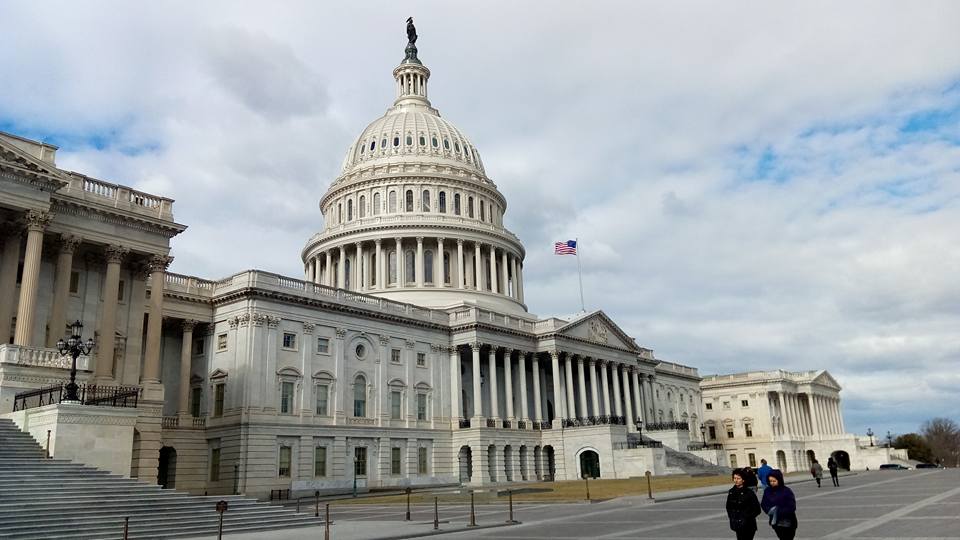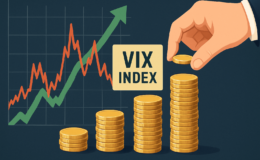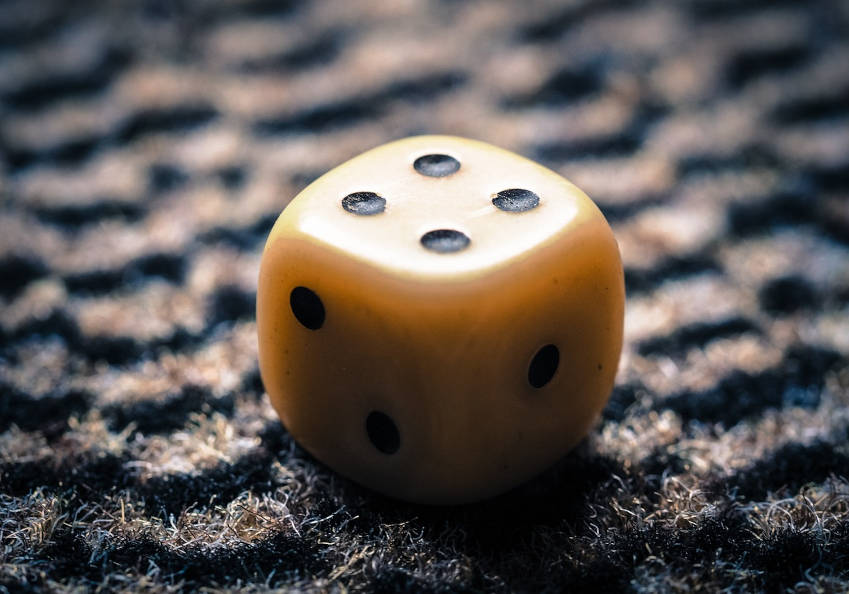Really interesting stuff… I googled balut and I find it very disgusting.
Also, you didn't mention that Mayweather won!
What 20 Years in America has Taught Me About Money
- By : Menard
- Category : American dream, Investing

Originally published on Feb. 20, 2017
Today is my 20th anniversary of living in America— the land of milk and honey. The place where pretty much anything that I’m accustomed to seeing is bigger. Bigger houses, bigger cars, bigger TVs., bigger you name it.
I can vividly remember what my reaction was the first time I was handed a bucket of popcorn in a movie theater. “Do you expect me to eat all that?” was written all over my face. Suddenly, it finally made sense why most Americans are bigger than me.
It was 1997, and companies in the United States were hiring like crazy in preparation for the Y2K problem, otherwise known as the Millennium bug. Problems arose because computer programs were designed to store only the last two digits of the year to save memory, and this made 2000 indistinguishable from 1900. It didn’t take a long time for me, a natural geek (I’ve been writing code since age 12), to get hired as a computer programmer.
I grew up in the Philippines, a country with a colorful history. At one point, it was regarded as the second wealthiest in East Asia, next only to Japan. But the economy stagnated in the mid-60s when the late dictator, President Marcos, and his wife Imelda (infamous for her 3,000 pairs of shoes), started using the country’s Central Bank as their personal ATM.
I came from a well-to-do family, but a great number of people in Manila, the city where I came from, were living in poverty. This was a sharp contrast to the booming economy of the U.S., where the majority is the middle class.
Eventually, I became a proud American citizen. I’m very grateful for the opportunities that were given to me. Now, I can honestly say that I love this country probably more than some of her natural-born citizens.
I’m also thankful for the money lessons that I learned along the way.
Time is money
When I ask a fellow Pinoy (an informal term for Filipino) to meet somewhere, at a specific time, a common follow-up question that I get is for qualification whether I meant Filipino or American time. Filipino time meant I’m coming 15 to 30 minutes late.
You see, Filipinos are notoriously known for being late. One theory that I read is that this is embedded in the culture as it’s generally considered ‘unethical’ to arrive at a party early as you don’t want to be perceived as greedy– that you want to get all the food for yourself.
On the other hand, “American time” meant arriving at a precise time. This probably started when the United States and Canadian railroads instituted a standard time in time zones. Before then, the time of day was a local matter and may vary from city to city. It became very important to arrive at the station at the exact same time in order to not miss your train ride.
In fact, one of the most fascinating things that I’ve read over the web about American time is that it’s not worth Bill Gates’ time, the richest man in the world, to pick up a dropped $100 bill from the ground because he’s making much more than that per second that he is alive.
I also learned that not investing early will cost you. Given two people of the same age who both plan to retire at age 60. The person who started investing at a late age of 35 will have to contribute twice as much on a monthly basis until retirement in order to accumulate the same amount of savings as the person who started at age 25.
From time to time, I still arrive at meetings a bit late. But I learned not to procrastinate. Whether it’s paying the bills or filing my taxes, I make sure that I complete them consistently ahead of time.
It took five years after I moved to America that I started to understand and appreciate the time value of money. I sort of regret not investing in my 20s. But it is certainly a lot better than not starting at all.
Diversify your investments
You’ve heard the mantra many times: “Don’t put your eggs in one basket!”. Of course, I knew about this even before I migrated to America. But because I’m Filipino the phrase has a different twist,
“Don’t put all your baluts in one basket.”
For those who never heard of it, a balut looks like a regular egg that you buy from the grocery store except that it is an actual developing bird embryo (usually a duck or a chicken). It’s a common food in countries in Southeast Asia and is considered as a favorite delicacy of many Filipinos.
Eating the thing has been featured many times in the popular stunt game show– Fear Factor. I personally find it funny to see how scared the contestants are eating this Filipino delicacy when I myself can eat five of those in one sitting especially when they’re still warm.
It’s all mind over matter. But I also know that it’s easier said than done. Case in point, I heard from my wife that some people in Texas eat cows’ balls– I have to admit, that is something that I cannot stomach.
Going back to investing, diversification essentially means investing in a mix of asset classes to ensure you are not in serious trouble even if you lost a significant amount of money on one of your investments. This is because any losses, incurred on any of your investments, maybe offset by gains earned by other assets.
Whereas there weren’t many options in the Philippines when I was living there, the vast number of investment options in the United States made it possible for me to diversify my investments.
The power of compounding
As a 13-year-old high-school student in the Philippines, my economics teacher required us to open a savings account at a local bank. Our grades at the end of each period would be partly based on the interest that we earned and how frequently we went to the bank to save some money.
To obtain the highest mark possible, I remember going to the bank to deposit a measly sum of three to five pesos (sometimes in really small denominations, to the ire of bank tellers), every first day of the week for the span of one year.
At that young age, I knew that my money was earning interest, no matter how small. I even knew the difference between simple and compound interest. But it was only when I moved to America after I started saving and investing in stocks for the long term, did I realize how fast my balance could possibly grow, especially when the dividends are reinvested.
For example, it took my retirement balance seven years to reach the $100,000 mark, but it took only a little over two years for it to double to $200,000.
The fact that you’ll end up more than $7,000,000 ahead when you doubled a penny every day for 30 days as compared to when you’re given a flat $100,000 each day for the same period is simply amazing.
It’s no surprise this mathematical phenomenon is always referred to as the 8th wonder of the world.
The greater the risk, the higher the reward
When it comes to sports, Filipinos are known to be passionate about boxing. Hence, the rise of the current record holder, eight-division boxing world champion, Philippine Senator Manny Pacquiao. At one point, he was the second highest-paid athlete in the world second only to his arch-nemesis Floyd “Money” Mayweather, an undefeated American fighter considered by many as the best defensive fighter that the sport has ever seen.
The 2015 fight was billed as “The Fight of the Century”. The fight was televised on pay-per-view (PPV) and was jointly produced by HBO and Showtime. Win or lose, both fighters received the highest purse in their life (the single biggest payday in the history of sports). This is in part because of the great amount of risk either party will supposedly experience when facing each other in the ring…
The greater the risk, the higher the reward.
The fight turned out to be a big disappointment because Mayweather spent most of his time dancing in circles around the Filipino boxer instead of fighting. Despite this, Pacquiao earned over $100,000,000 fighting Mayweather, who probably earned twice as much.
Compare that number to the relatively small $4,000,000 base purse that Pacquiao earned fighting a lesser-known Mexican boxing champion, Jessie Vargas, last fall (I and a couple of friends personally flew to Vegas to watch the fight)…
The lesser the risk, the lower the reward.
When it comes to investing, investors can control or minimize the risk in their portfolio with a proper mix of stocks, bonds, or cash. Most experts consider a portfolio more heavily weighted toward stocks riskier than a portfolio that favors bonds. Stocks are more suitable for someone with a higher risk tolerance, whereas bonds will be more appropriate for those who can’t afford the risk.
Should you invest the majority of your retirement savings in bonds because it’s less risky? The answer is a big NO unless you’re retiring next month. On average, the S&P 500 has returned about 12% since 1982. You’re lucky if you get half of that investing in bonds.
Investing in a diversified portfolio of stocks for the long term is the best way to combat inflation, which is likely to erode your returns otherwise. Using the boxing analogy above, you should face a riskier Mayweather because of the higher rewards. Not to mention that you get to punch him in the face.
American innovation played a major role in providing the advanced tools needed to manage the risk and maximize the rewards of your portfolio. I as well as other immigrants from around the world who worked for fintech companies have contributed our share towards the advancement of the technology– in our ittle way.
I’m looking forward to learning more lessons in the years to come.



